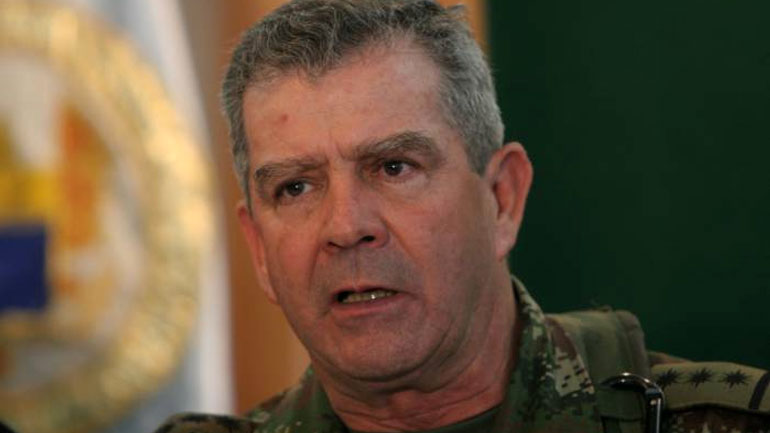The former commander of Colombia’s National Army was called in for interrogation on Tuesday over his alleged role in the killing of thousands of civilians who fraudulently were reported as killed guerrillas.
Montoya is one of 22 generals investigated for the killing of at least 4,000 civilians who were executed, dressed up in guerrilla clothing by members of the military and subsequently registered as guerrillas killed in combat.
Colombia investigating 22 generals over extrajudicial killing scandal
Fact sheet
False positives
Montoya assumed the leadership of the army in 2006 and resigned in November 2008 after the “false positives” practice had become public.
The gruesome practice became so common during the administration of former President Alvaro Uribe that by 2007, more than 40% of registered combat kills were in fact murdered civilians.
The mass killing of civilians also severely tarnished the name of current President Juan Manuel Santos, who was defense minister in the same years Montoya was army commander and the false positive killings were most prevalent.
Combat kills as reported by the Colombian militaryReported combat kills minus established ‘false positives’ |
Profile
AUC
Montoya, who also faces numerous allegations of ties to now-defunct paramilitary group AUC, is not the only general who was called in for interrogation.
Other generals who will have to appear before prosecutors are former Armed Forces commander Ricardo Andres Bernal, the former commander of the army’s 5th Division and former planning chief General Henry William Torres.
So far, more than 400 army commanders, 800 unit commanders and almost 3,000 soldiers have been formally indicted in what the UN called the systematic killing of civilians.
The scandal has been one of the biggest in the history of Colombia’s armed forces and, among other scandals, spurred a reduction in US military aid that had helped push back leftist guerrilla groups from Colombia’s major cities, highways and economic hubs.


